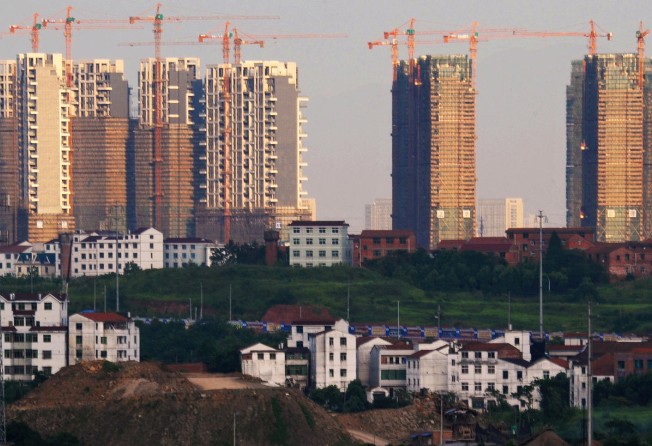PPPs may offer return to the golden days of China's property market
Beijing's renewed interest in the public-private partnership model to support urbanisation plans looks set to benefit the property market

Academic Antonio Estache once noted that all developing countries flirted with the idea of public-private partnerships.
China is one of the many that has demonstrated its interest in such partnerships - projects funded and operated by the government and the private sector - after some experimentation with this model.
In 2006, the construction of Beijing's subway line 4 was 30 per cent funded by private capital, entitled under a management licence to recoup the investment.
However, China has only recently shown renewed commitment to the PPP model, after facing pressure for improved public services, better infrastructure and more residential housing.
When President Xi Jinping unveiled plans to court private investment in 2013, it marked the start of a new wave for PPPs.
Like any relationship, an anniversary calls for reflection. Last year saw a flurry of announcements and policies to facilitate what looks like an actual "proposal".
Early in the year, the National Development and Reform Commission invited "social capital" investment in a shortlist of 80 projects, previously off-limits to private investors. The projects include the construction and operation of railways, roads, harbours, wind power stations and oil pipelines.
This "proposal" was marked by the publication of the guidelines by the State Council highlighting the importance of PPPs in mobilising private capital. Shortly after that, the PPP centre was established - lauded by Apec as a centre of excellence.
Late last year the Ministry of Finance published trial guidelines on the models for PPP or social capital. Within a week, it launched 30 PPP projects worth about 180 billion yuan (HK$222.5 billion).
About the same time, the NDRC also published its own guiding opinions, principally on the scope and models for PPPs: public services and infrastructure projects funding. The NDRC has since approved the construction of a new Beijing airport worth nearly 80 billion yuan and five highway projects, all within the same week.
The very clear message is that PPP remains a high priority on the government's agenda and this year could well be the year that Beijing will fully embrace this model. But will private parties will be convinced to tie the knot with the government?
This proposed union could indeed be very attractive. However, some private investors may feel cautious about the government's lack of experience in the sector, or the preference to be in the driving seat. Ren Zhiqiang, the investor behind Beijing's subway line 4, openly called his investment in this PPP project "a generous donation".
A mature and experienced private party, however, focuses on the significant opportunity around PPPs, rather than the distraction of obstacles and problems. The fundamentals are there. First, a patron with an undeniably strong heritage. The secret to success in China is to follow the direction and policies implemented by the government.
Second, the demand is there. PPPs are viewed as a way to plug the funding gap in supporting urbanisation.
Third, the figures are there. China is calling for 42 trillion yuan to meet its 60 per cent urbanisation target rate in five years, by pouring investment into transport networks, urban infrastructure, residential real estate and affordable housing.
Naturally, with strong fundamentals comes potential. By helping the government, the private parties help themselves. New infrastructure and public services are essential to the urbanisation plan. Successful urbanisation can only have a positive effect on the property market, following a period characterised by underperformance.
Also, when the government learns how to "let go" of certain things, the private parties will be better placed to call the shots and influence the direction of travel for certain business sectors.
China is certainly sending the right messages to attract private investors. For example, the NDRC emphasises risk-sharing and cooperation between the government and the private sector under the PPP model.
This year, there are high expectations. Before the knot is tied, private parties are likely to look to the government for clear boundaries and responsibilities, a transparent legal and regulatory framework and real protection for private investors. For now, all we need is patience. As Henry Ford said on marriage: "Coming together is a beginning; keeping together is progress; working together is success."
Victoria Gardner is a partner and Lu Junwei is an associate at law firm Berwin Leighton Paisner (HK)